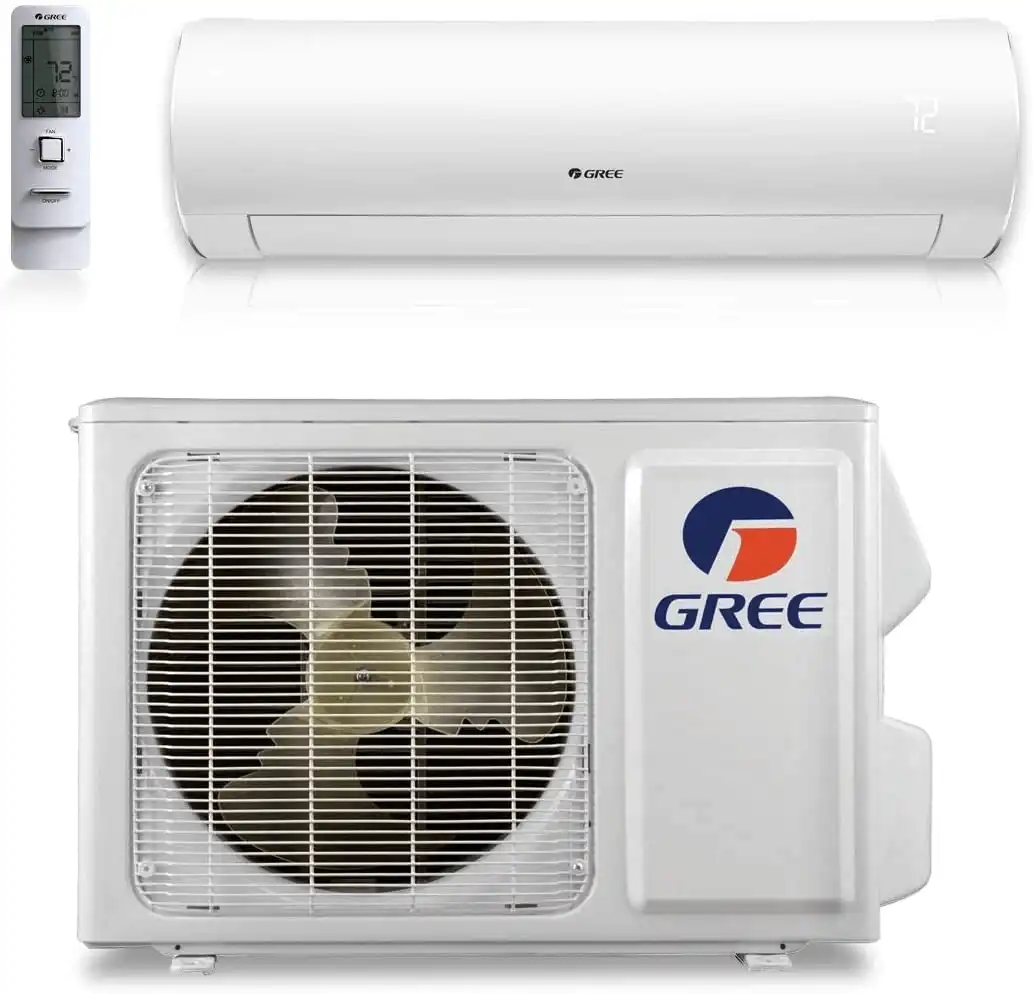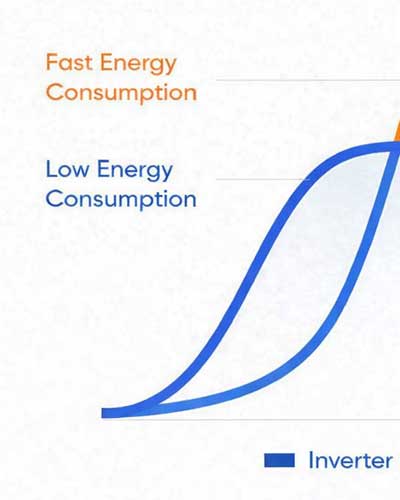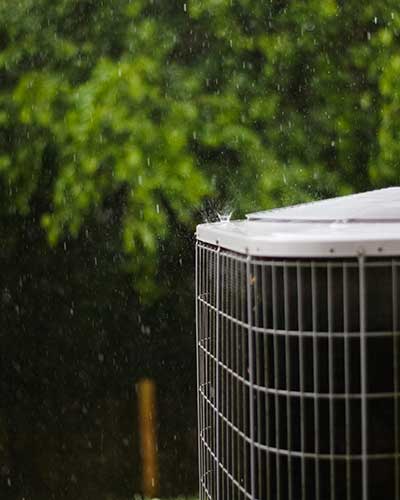
The HVAC Contractor's In-depth Guide to Heat Pump Cleaning & Cleaning Heat Pump Coils
As HVAC contractors, customers rely on you to keep their heat pumps running efficiently, providing the comfortable temperatures they need year-round. One critical aspect of your service is heat pump cleaning and maintenance, particularly in regard to the coils. Coils play a significant role in heat pump unit's heat transfer process (performance). This guide is designed to equip you with the knowledge you need to deliver excellent coil cleaning services.
Why is Heat Pump Coil Cleaning Essential?
-
Heat pump coil cleaning isn't just about maintaining appearances; it's primarily about performance and longevity. Dust, grime, and other forms of buildup on the coils can impede heat transfer, forcing the heat pump to work harder and increasing wear on its components. Cleaning of the coils every 6 months can prevent this, improving efficiency and extending the life of the unit. As a trusted contractor, your role can directly impact your client's satisfaction and the reputation of your services. Here are some of the reasons you should create a plan with your clients to regularly get have their heat pumps cleaned:
Efficient Operation: Heat pump coils, both indoor and outdoor, can accumulate dirt, dust, pollen, and other debris over time. This buildup can restrict airflow, reducing the heat pump's efficiency and overall performance. Regular cleaning helps maintain optimal airflow and ensures that the heat pump operates at its highest efficiency.
-
Prevent System Overload: When the coils are dirty, the heat pump has to work harder to transfer heat effectively. This increased workload can put a strain on the system, leading to higher energy consumption and potentially causing components to wear out more quickly. Cleaning the coils helps prevent system overload and prolongs the lifespan of the heat pump.
-
Improved Indoor Air Quality: A clean heat pump plays a vital role in maintaining good indoor air quality. As the heat pump circulates air, contaminants on the coils can be blown into the living space, leading to allergens and pollutants being present in the air. Regular cleaning ensures that the air circulated by the heat pump is clean and free from accumulated contaminants.
-
Prevent Freezing: Dirty coils can impede the heat exchange process, leading to inadequate heat transfer and potential freezing. When the coils are dirty, they may not be able to absorb or release heat effectively, resulting in reduced heat pump performance and the risk of freeze-ups when combined with extreme winter temperatures and other malfunctions. Cleaning the coils helps prevent freezing and ensures the heat pump functions properly during winter months.
Necessary Tools for Heat Pump Coil Cleaning
Before tackling a heat pump coil cleaning job, it's essential to have the right tools on hand. Below are a handful of items you may want to have depending on what kind of heat pump system you’re cleaning.
-
Safety Equipment: You’ll want to have goggles, a face mask, and gloves to keep you protected from any debris that may come out of the unit during cleaning.
-
Coil Cleaning Solution: A suitable coil cleaning solution is necessary to effectively remove dirt, dust, and debris from the heat pump coils. There are various coil cleaning solutions available in the market, including foaming and non-foaming types. Choose a product that is compatible with the specific heat pump coils and follow the manufacturer's instructions.
-
Sprayer or Pump Sprayer: A sprayer or pump sprayer is used to apply the coil cleaning solution onto the heat pump coils. This allows for even distribution and effective penetration of the solution to loosen and remove dirt from the coils.
-
Soft-Bristled Brush: A soft-bristled brush is used to gently scrub the coils after applying the cleaning solution. It helps dislodge stubborn dirt and debris from the coils without causing damage. Avoid using abrasive brushes that could potentially damage the delicate fins of the coils.
-
Vacuum Cleaner: A vacuum cleaner with a brush attachment can be used to remove loose dirt, debris, and residue from the coils and surrounding areas. It helps ensure a thorough cleaning and prevents debris from spreading further into the system.
The Procedure: Cleaning Heat Pump Coils Step by Step
-
Prepare Safety Equipment: Put on the necessary personal protective equipment, including safety goggles, gloves, and a face mask, to protect yourself from dirt, debris, and potential cleaning chemicals.
-
Turn Off Power: Before starting any cleaning procedures, ensure the heat pump is completely turned off and disconnected from the power source to avoid any electrical hazards.
-
Inspect the Heat Pump: Conduct a visual inspection of the heat pump, checking for any visible signs of damage, loose connections, or other issues that may need attention before or during the cleaning process. Make note of any areas that require special care.
-
Remove Debris: Use a soft brush or a vacuum cleaner with a brush attachment to remove loose dirt, debris, leaves, and other obstructions from the exterior of the heat pump, as well as from the surrounding area.
-
Apply Coil Cleaning Solution: Dilute the appropriate coil cleaning solution following the unit’s instructions. Using a sprayer or pump sprayer, apply the cleaning solution evenly to the heat pump coils. Take care not to oversaturate the coils or let the solution come into contact with electrical components.
-
Allow Dwell Time: Allow the cleaning solution to dwell on the coils for the recommended period specified by the manufacturer. This gives the solution time to loosen dirt and debris from the coils.
-
Gently Brush the Coils: Using a soft-bristled brush, gently scrub the coils in a back-and-forth motion to dislodge dirt and debris that has been loosened by the cleaning solution. Pay close attention to the finned area and be careful not to damage the delicate fins.
-
Rinse with Water: Once the coils have been thoroughly brushed, rinse them with a moderate water flow from a hose or other water source. Start from the top and work your way down, ensuring that all cleaning solution residue and debris are washed away. Take care to avoid directing water into electrical components.
-
Inspect and Dry: After rinsing, inspect the coils to ensure they are clean and free from debris. Allow the coils to air dry completely before reassembling and restarting the heat pump.
-
Reassemble and Test: Once the coils are dry, reassemble any components that were removed, ensuring they are properly secured. Restore power to the heat pump and test its operation to ensure it is functioning correctly.
-
Educate the Homeowner: mention how the homeowner needs to rinse out the reusable filters on the indoor units once per month. Make sure the homeowner is educated on how to do this properly…
Remember, these steps provide a general guideline for cleaning heat pumps and coils. It's crucial to refer to the manufacturer's guidelines and specific instructions for the heat pump model you are working with to ensure proper cleaning procedures.
Heat Pump Coil Cleaning's Role in Energy Efficiency
Regular professional coil cleaning has a direct impact on a heat pump's energy efficiency. Clean, unimpeded coils enable efficient heat transfer, reducing the need for the unit to work harder and consume more energy. As HVAC contractors, you can help your clients save on their energy bills and reduce their environmental impact through regular, effective coil cleaning services.
Regular heat pump cleaning & coil cleaning is vital to maintain optimal system performance and efficiency for your clients. By following proper cleaning procedures and adhering to manufacturer guidelines, contractors can ensure reliable operation and prevent issues like reduced airflow and potential freeze-ups. For more information on proper care & maintenance of heat pump mini-split systems, visit our instructional videos and FAQ page, and consider applying to become a GREE Select Dealer to gain special access to promotions, rebates, and improved warranty terms for your customers!





